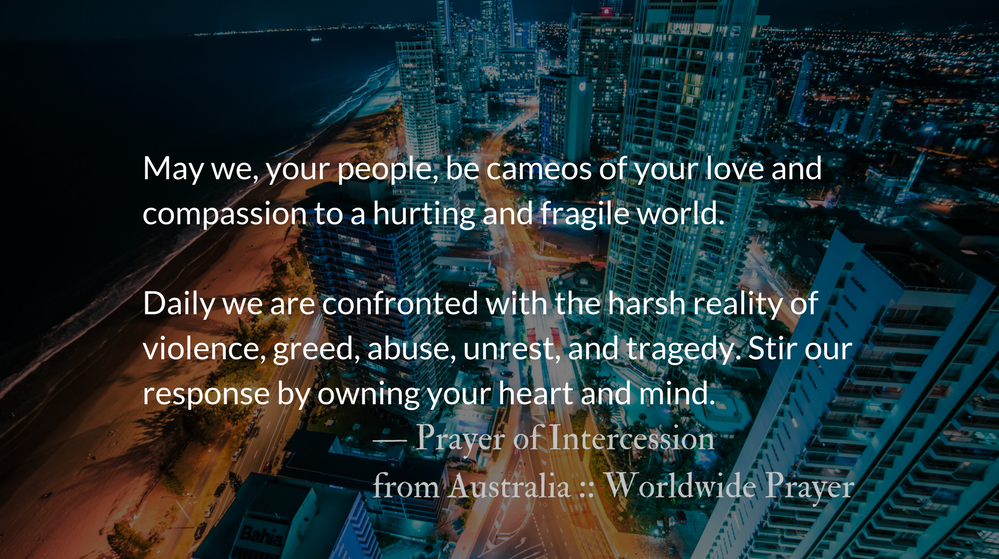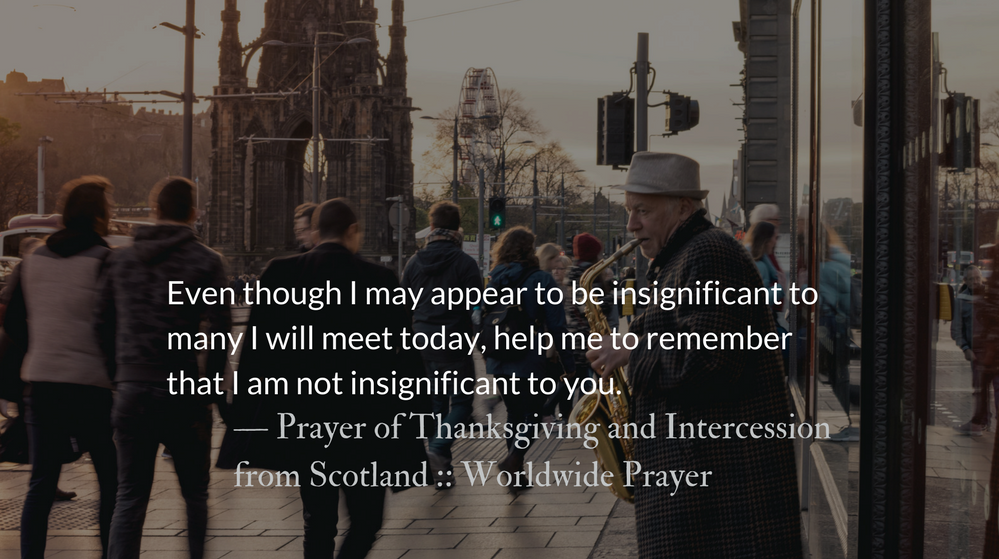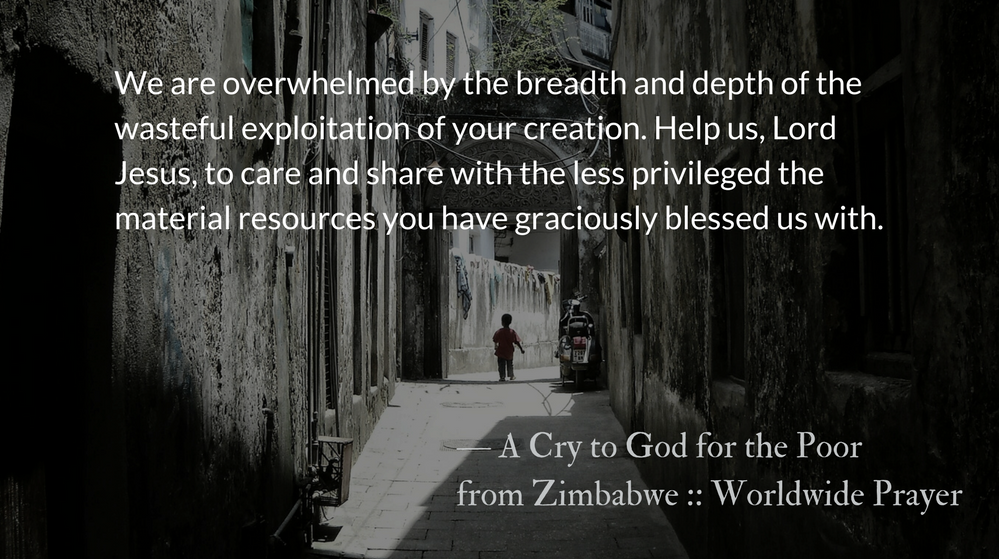Scripture: Romans 16.1-4
I commend to you our sister Phoebe, a deacon of the church in Cenchreae. I ask you to receive her in the Lord in a way worthy of his people and to give her any help she may need from you, for she has been the benefactor of many people, including me.
Greet Priscilla and Aquila, my co-workers in Christ Jesus. They risked their lives for me. Not only I but all the churches of the Gentiles are grateful to them.
The response stirred by owning Christ’s heart and mind— as the prayer below requests—must look something like the actions of Phoebe, Priscilla, and Aquila—noted in part above. They were not only financial benefactors of the Gospel and those who spread it, but willingly risked their lives on its behalf. All Christians today still owe them a debt of gratitude. — John
Reflection: Prayer of Intercession from Australia :: Worldwide Prayer
Creator God, all compassionate Father,
Source of life whose heart is passionate towards all,
May we, your people, be cameos of your love and
compassion to a hurting and fragile world.
Daily we are confronted with the harsh reality of violence, greed,
abuse, unrest, and tragedy. Stir our response by owning your heart and mind.
May we be courageous in challenging injustice,
Ready to listen but hesitant to judge,
Willing to welcome the outcast,
Diligent in seeking and claiming truth.
Oh God of hope,
Your light never fails, is never extinguished.
Warm our hearts with the fire of Christ’s love so that wherever we go we will communicate Jesus Christ.
In His divine name we pray.
*Prayer from Hallowed be Your Name: A collection of prayers from around the world, Dr. Tony Cupit, Editor.
The Request for Presence
Satisfy us by your loving-kindness in the morning; so shall we rejoice and be glad all the days of our life. — Psalm 90.14
– From The Divine Hours: Prayers for Springtime by Phyllis Tickle.
Full prayer available online and in print.
Today’s Readings
Job 12 (Listen – 2:21)
Romans 16 (Listen – 3:30)






